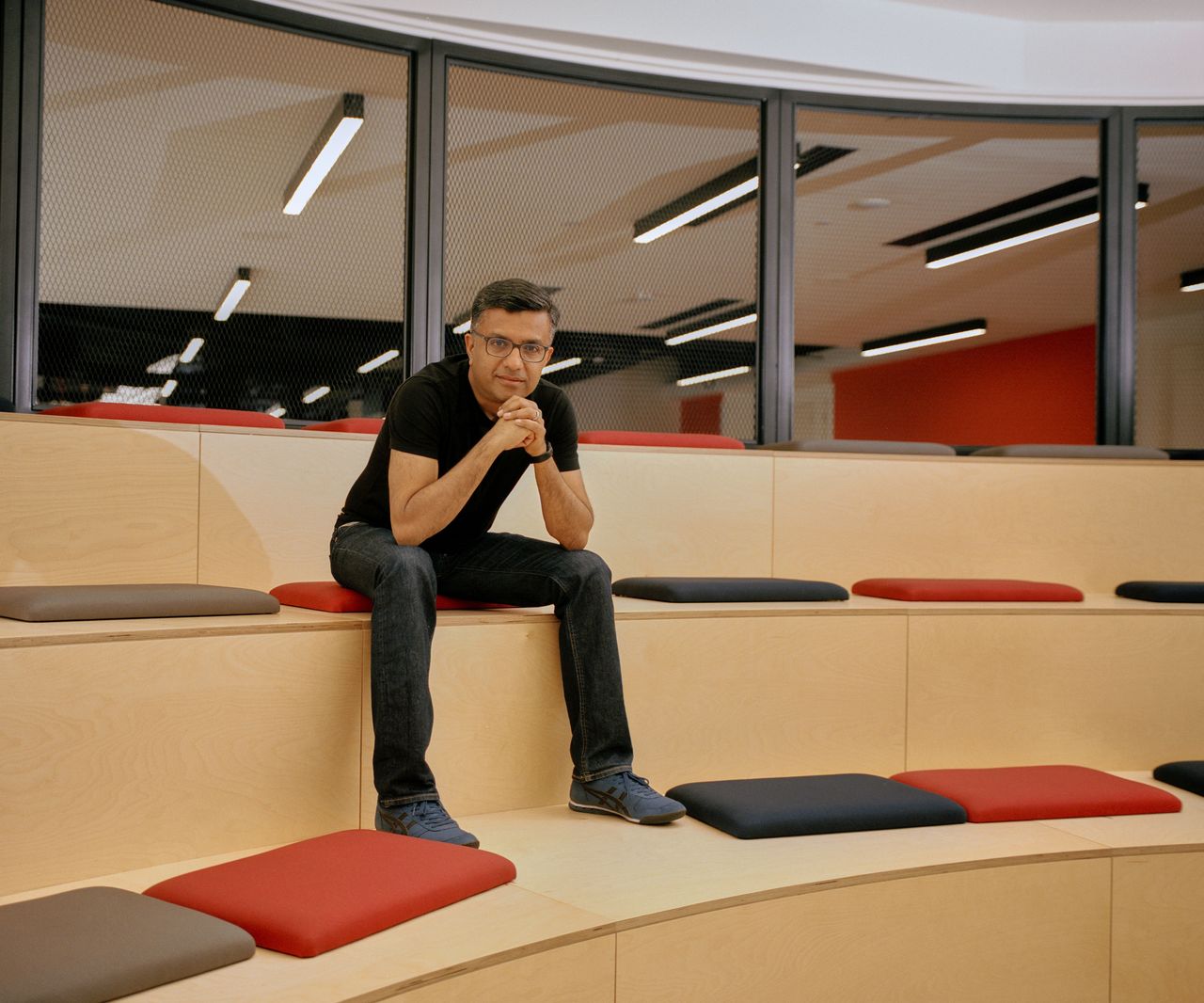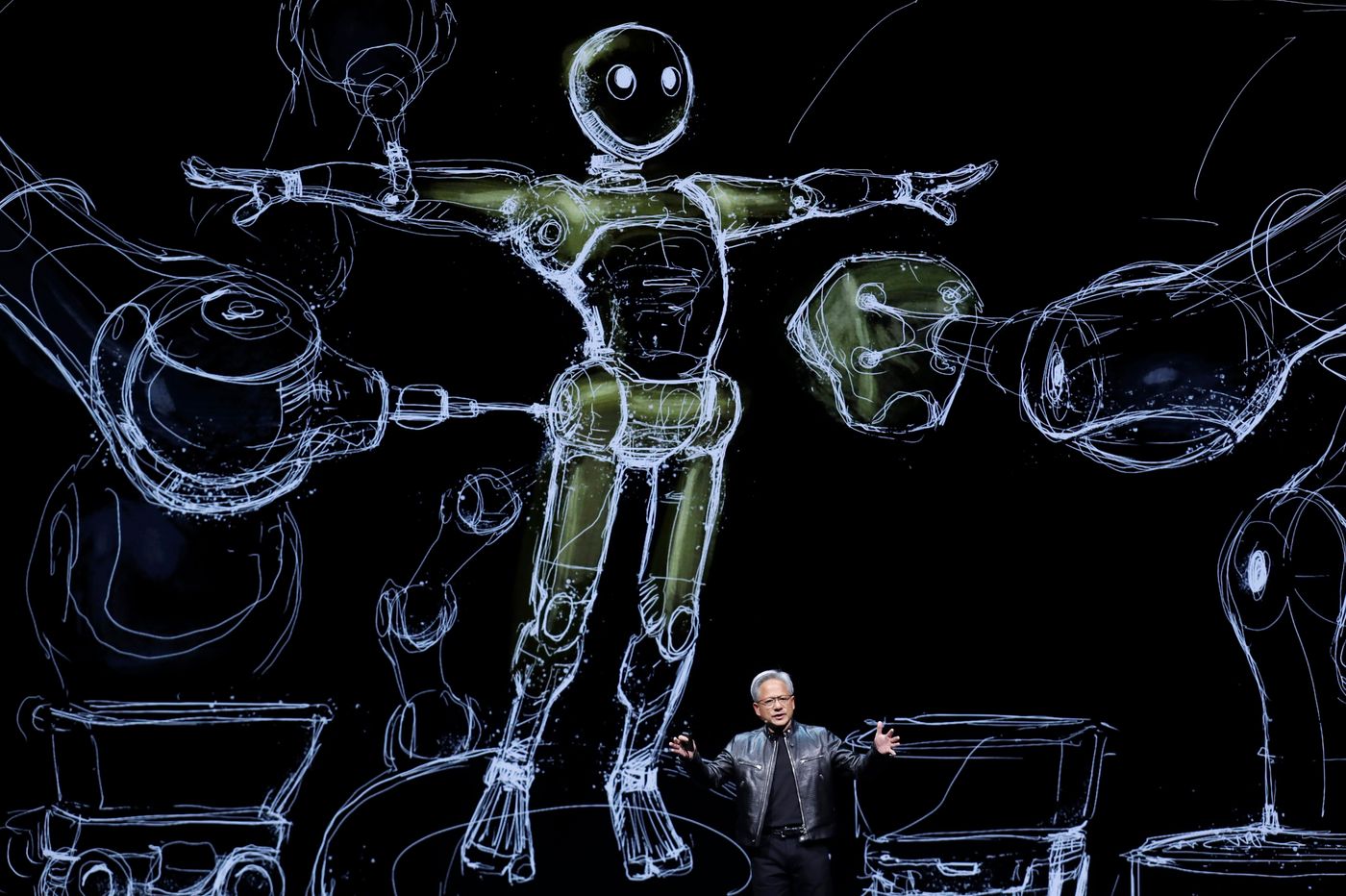The Online Bank That Wants To Reshape Work And Money
Shifts in benefits and investing are here to stay, says TS Anil, global chief executive of Monzo Bank.
If the pandemic changed the way people view their jobs, it may have also ushered in a new challenge for managers: how to keep reshaping work for years to come.
The desire for flexibility and a rethinking of workers’ relationships with their employers are likely to remain well into the future, putting pressure on employers to respond, says TS Anil, global chief executive of Monzo Bank. The online bank based in London officially launched U.S. operations earlier this year; it employs more than 2,500 people globally. Monzo doesn’t have physical banks but instead is based on a digital app that consolidates a user’s financial information and has tools like bots that can direct money into certain categories–say, saving for a future home.
Born in India, Mr. Anil has worked around the world at companies including Standard Chartered, Citigroup and Capital One. He was global head of payment products and platforms at Visa before joining Monzo in 2020.
He says he has spent much time in recent months considering where work is headed and how the financial-technology company’s own workplace policies should evolve. Monzo this year rolled out a three-month paid-sabbatical program for staffers who have been at the company four years or more. Such efforts reflect a desire to find ways to better support employees, Mr. Anil says.
The company is also aiming to stay ahead of changes in the ways consumers manage their finances while competing with its larger bank rivals. Mr. Anil spoke with The Wall Street Journal about what he’s focused on next.
The job market right now is tight–workers have more leverage, and employers have responded. Five years from now, will employees have as much power as they do today?
What has continued to change slowly over the last several years—but then Covid quite possibly accelerated—is the shift in mindset about what it means to work. People, increasingly, don’t want their jobs to just be about, “I go do this, and I get a paycheck.” People want meaning from their work, people want the ability to work in ways that work around their lives effectively. That shift creates opportunity for companies like us who are leading the way in terms of understanding what employees want and are willing to not be anchored to a historical way of doing things. So, yeah, I don’t think things go back in five years; this is an important cultural shift, and it’s a welcome cultural shift.
What are the new benefits companies will need to offer in the future to get employees to stay?
It’s hard to speculate on specific benefits. At Monzo, we’ve always been about our values. One is this idea that you help everyone belong. And it means we come up with ways that we can institutionalize policy to make everyone get that sense of what works best for them. We announced additional paid leave for colleagues of ours who suffer pregnancy loss, or who are undergoing fertility treatments.This is one of those where it feels like this should have always been offered by companies around the world.
What was it that prompted you to start offering paid sabbaticals?
We’re now going on seven years old, and building a bank—or really any kind of tech company—and scaling it is a marathon not a sprint. And we’re at the stage where enough of our employees have put in a few years of incredibly hard work. As we built it out, it felt like a good time to give people the ability to take a break, recharge, come back with even more energy to continue this marathon that we’re all excited to be on.
What has the response been like—how many people have signed up for a sabbatical?
I don’t have the numbers that add up how many we’ve already done since we’ve announced it, but lots of people have queued it up in terms of what they want to do in a few months, at the end of the year, early next year, and so on. So the response has been amazing.
When you look at banking, what’s the biggest change you expect to see in the industry in the next 10 years?
The biggest thing that I hope we see is making money work for everyone, which means really giving people the tools to make great decisions for themselves, to help them understand and make sense of their money. It’s still amazing and sad how little customers around the world are supported in all decisions related to their money. It’s such a source of anxiety for customers, that I’m hoping that, in the next decade, as an industry, we’ve solved that problem.
Is there a specific shift you foresee in how people will manage their money?
What I aspire to for us is that across all of your financial needs—whether it’s spending, paying, transacting borrowing, saving, investing—all of that happens in a single place. So as an individual trying to make sense of my money, I can see it all in one place; I can visualize it, I can analyze it.
What are the challenges you feel the company will need to overcome to fulfil this vision?
It’s important for us that we continue to evolve our culture for the scale that we’re growing into. That’s probably the single biggest one, to make sure that you preserve the best aspects of your culture—what we internally describe as the golden threads. Keep the golden threads, let go of the stuff that’s not working and keep evolving it. If you can get that right, then you can continue to scale and continue to have impact.
What will your job or industry look like in 2030?
It is making money work: taking the anxiety out of it for [customers] and replacing it with a sense of control and the sense that their money is working. It’s this idea of a single financial control centre—it’s in one place, they get in there, and they understand across the financial needs what the best choices are and they’re able to make them. The fundamental job of CEO is to enable the team to do the best work of their lives, and do it in a context of creating better and better outcomes for customers and for the company as a whole. So the fundamentals don’t change; that will remain the job of the CEO.
OK, five years from now, will people be working in offices more or less than today?
We joke inside the company that, what people talk about as the future of work, we talk about the now of work. Even before Covid-19, we were remote enabled; hybrid work was a reality for us anyway. Technology enables remoteness, but the human need for connection is just as real. The interplay between these two forces, I think, is what the future will be informed by. I’ve never thought of the future as being sort of homogenous, just like the present is not homogenous, right? Even in the same country, in the same company, people have different realities. The future will not be different.
Reprinted by permission of The Wall Street Journal, Copyright 2021 Dow Jones & Company. Inc. All Rights Reserved Worldwide. Original date of publication: May 6, 2022.
 Copyright 2020, Dow Jones & Company, Inc. All Rights Reserved Worldwide. LEARN MORE
Copyright 2020, Dow Jones & Company, Inc. All Rights Reserved Worldwide. LEARN MORE
This stylish family home combines a classic palette and finishes with a flexible floorplan
Just 55 minutes from Sydney, make this your creative getaway located in the majestic Hawkesbury region.
As Paris makes its final preparations for the Olympic games, its residents are busy with their own—packing their suitcases, confirming their reservations, and getting out of town.
Worried about the hordes of crowds and overall chaos the Olympics could bring, Parisians are fleeing the city in droves and inundating resort cities around the country. Hotels and holiday rentals in some of France’s most popular vacation destinations—from the French Riviera in the south to the beaches of Normandy in the north—say they are expecting massive crowds this year in advance of the Olympics. The games will run from July 26-Aug. 1.
“It’s already a major holiday season for us, and beyond that, we have the Olympics,” says Stéphane Personeni, general manager of the Lily of the Valley hotel in Saint Tropez. “People began booking early this year.”
Personeni’s hotel typically has no issues filling its rooms each summer—by May of each year, the luxury hotel typically finds itself completely booked out for the months of July and August. But this year, the 53-room hotel began filling up for summer reservations in February.
“We told our regular guests that everything—hotels, apartments, villas—are going to be hard to find this summer,” Personeni says. His neighbours around Saint Tropez say they’re similarly booked up.
As of March, the online marketplace Gens de Confiance (“Trusted People”), saw a 50% increase in reservations from Parisians seeking vacation rentals outside the capital during the Olympics.
Already, August is a popular vacation time for the French. With a minimum of five weeks of vacation mandated by law, many decide to take the entire month off, renting out villas in beachside destinations for longer periods.
But beyond the typical August travel, the Olympics are having a real impact, says Bertille Marchal, a spokesperson for Gens de Confiance.
“We’ve seen nearly three times more reservations for the dates of the Olympics than the following two weeks,” Marchal says. “The increase is definitely linked to the Olympic Games.”

Getty Images
According to the site, the most sought-out vacation destinations are Morbihan and Loire-Atlantique, a seaside region in the northwest; le Var, a coastal area within the southeast of France along the Côte d’Azur; and the island of Corsica in the Mediterranean.
Meanwhile, the Olympics haven’t necessarily been a boon to foreign tourism in the country. Many tourists who might have otherwise come to France are avoiding it this year in favour of other European capitals. In Paris, demand for stays at high-end hotels has collapsed, with bookings down 50% in July compared to last year, according to UMIH Prestige, which represents hotels charging at least €800 ($865) a night for rooms.
Earlier this year, high-end restaurants and concierges said the Olympics might even be an opportunity to score a hard-get-seat at the city’s fine dining.
In the Occitanie region in southwest France, the overall number of reservations this summer hasn’t changed much from last year, says Vincent Gare, president of the regional tourism committee there.
“But looking further at the numbers, we do see an increase in the clientele coming from the Paris region,” Gare told Le Figaro, noting that the increase in reservations has fallen directly on the dates of the Olympic games.
Michel Barré, a retiree living in Paris’s Le Marais neighbourhood, is one of those opting for the beach rather than the opening ceremony. In January, he booked a stay in Normandy for two weeks.
“Even though it’s a major European capital, Paris is still a small city—it’s a massive effort to host all of these events,” Barré says. “The Olympics are going to be a mess.”
More than anything, he just wants some calm after an event-filled summer in Paris, which just before the Olympics experienced the drama of a snap election called by Macron.
“It’s been a hectic summer here,” he says.

AFP via Getty Images
Parisians—Barré included—feel that the city, by over-catering to its tourists, is driving out many residents.
Parts of the Seine—usually one of the most popular summertime hangout spots —have been closed off for weeks as the city installs bleachers and Olympics signage. In certain neighbourhoods, residents will need to scan a QR code with police to access their own apartments. And from the Olympics to Sept. 8, Paris is nearly doubling the price of transit tickets from €2.15 to €4 per ride.
The city’s clear willingness to capitalise on its tourists has motivated some residents to do the same. In March, the number of active Airbnb listings in Paris reached an all-time high as hosts rushed to list their apartments. Listings grew 40% from the same time last year, according to the company.
With their regular clients taking off, Parisian restaurants and merchants are complaining that business is down.
“Are there any Parisians left in Paris?” Alaine Fontaine, president of the restaurant industry association, told the radio station Franceinfo on Sunday. “For the last three weeks, there haven’t been any here.”
Still, for all the talk of those leaving, there are plenty who have decided to stick around.
Jay Swanson, an American expat and YouTuber, can’t imagine leaving during the Olympics—he secured his tickets to see ping pong and volleyball last year. He’s also less concerned about the crowds and road closures than others, having just put together a series of videos explaining how to navigate Paris during the games.
“It’s been 100 years since the Games came to Paris; when else will we get a chance to host the world like this?” Swanson says. “So many Parisians are leaving and tourism is down, so not only will it be quiet but the only people left will be here for a party.”
This stylish family home combines a classic palette and finishes with a flexible floorplan
Just 55 minutes from Sydney, make this your creative getaway located in the majestic Hawkesbury region.






















